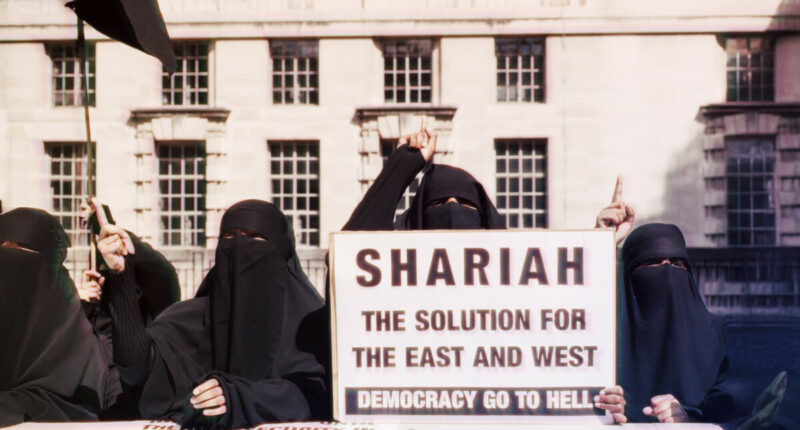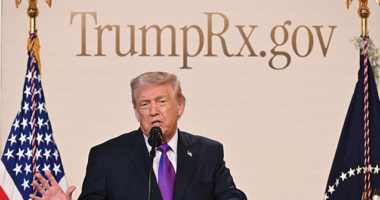Share this @internewscast.com
England is quietly becoming the Western capital of Sharia law courts — a fact that should have every British citizen alarmed. Over 80 Sharia courts now operate across the country, administering Islamic religious rulings on everything from marriage to family matters.
This isn’t an obscure development; it’s increasingly becoming a well-known and entrenched aspect of British society. Mantanel Samin sharply expressed this in a widely-shared Instagram video: England has been “Sharia colonized.” His passionate outcry serves both as a warning and a lament, cautioning Britons about their country’s legal and cultural norms being subtly transformed under the cloak of religious accommodation.
Matanel Samin to UK: “You’ve been Sharia f-cking Colonized.” pic.twitter.com/GmmmWJwxPf
— National File (@NationalFile) October 2, 2025
Samin’s concerns aren’t mere alarmism. His impactful video highlights a profound issue: Britain is home to 85 Islamic councils — unofficial religious bodies mainly led by male Islamic scholars — that hold substantial sway within Muslim communities. Originating in 1982, these councils have multiplied, attracting adherents from Europe and North America seeking informal judicial decisions, particularly concerning marriage and divorce. Theology expert Professor Mona Siddiqui explains that Sharia law arises from interpretations and legal opinions by Islamic scholars from the 7th to 13th centuries — centuries disconnected from today’s secular democracy.
Britain’s role as a nucleus for these Sharia courts is unmatched in Western countries. They function alongside the formal English and Welsh legal system — a system once implicitly trusted by scholars, attorneys, and ordinary citizens. Now, these informal courts take the place of parliamentary law for thousands daily.
These Sharia courts are not theoretical; they are closely linked with local mosques and Islamic community hubs. The Manchester Community Centre in Didsbury, Manchester — recognized as both a mosque and a charity — recently listed a vacancy for a Shariah Law Administrator. Per an archived job listing on the UK government’s “Find a Job” portal, the role offered a full-time salary of £23,500 and required on-site work to manage Sharia-related legal tasks within the community center.
The listing sparked significant backlash from various British cultural and political figures. Councillor Maxwell Harrison publicly criticized the Department for Work and Pensions for advertising the Sharia law administrator position on their official platform. In a fervent Facebook video, Harrison denounced the department’s decision as an “assault on not just our values but our culture.”
The UK Department for Work and Pensions endorses Sharia law admin. Opponents view it as a strike against UK principles, calling for its prohibition. pic.twitter.com/twYB6jCLTm
— National File (@NationalFile) October 2, 2025
He ended with, “I think it’s very clear now we must ban Sharia law in all forms throughout all their councils. Should we be banning Sharia law in this country? Yes or no?”
The intertwining of Sharia law with British legal and cultural life also brings into question the extent of these councils’ authority and their position in British society. Often operating outside of any official legal oversight, they make decisions that can deeply affect the lives of Muslims and non-Muslims alike, especially women, in matters the British state traditionally regulates.
Supporters claim these courts offer communities a culturally sensitive and religiously appropriate legal framework for personal matters. But critics argue this effectively creates a parallel legal system at odds with the UK’s secular, democratic values — a system that can impose restrictions contrary to human rights protections, especially regarding gender equality.
The Manchester Community Centre exemplifies how embedded Sharia practices have become in parts of England. The hiring of a Sharia Law Administrator personifies the normalization of Sharia institutions integrating into British public life. This position signifies official sanction within community organizations — a tacit acknowledgment that Sharia law is no longer confined to private religious contexts but actively administered alongside British law.

Britain’s quiet acceptance of Sharia courts is part of a broader failure to confront the societal and legal ramifications of religious enclaves operating above the state. As Mantanel Samin’s enraged warning echoes — Britain is already “Sharia colonized.” The consequences are severe: erosion of the country’s legal sovereignty, increasing social fragmentation, and challenges to women’s and individual freedoms.
This creeping Sharia legal influence cannot be dismissed as harmless multicultural charity unaffected by wider British society. The courts wield real power, shaping lives in ways unaccounted for by democratic institutions. When official government departments like the Department for Work and Pensions promote Sharia roles, Britain crosses a dangerous line.
England stands at a crossroads. Will it protect its long-standing legal traditions and secular democratic values or continue down a path where alternative, religious-based laws gain footholds within the country? The government’s tacit endorsement of Sharia administrative roles signals a troubling direction.
The truth is clear: Sharia law, by its very nature, conflicts with the principles of British democracy and the rule of law. The surge in Sharia courts, the public promotion of Sharia administrative positions, and the silence of many governmental institutions on these matters threaten the coherence of the British legal system and cultural identity.

















